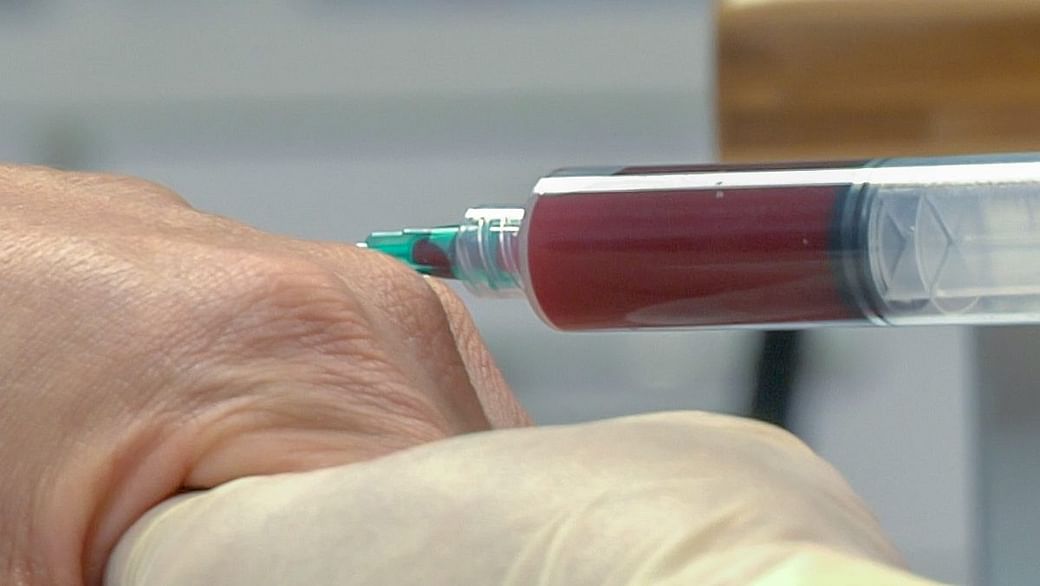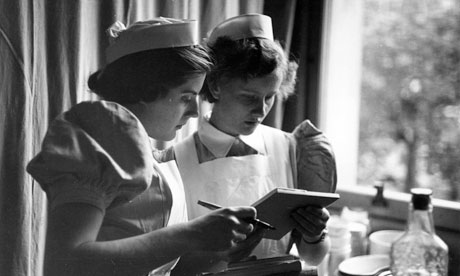1 It’s not all about sex
TRUE “For most people, a satisfying sexual relationship is an important part of a good relationship,” says Susanna Abse, psychoanalytic therapist and author of Tell Me the Truth About Love: 13 Tales from Couple Therapy. “While sex may not be the most important thing, it’s certainly an indicator of chemistry, and it matters – especially at the start. Also, if you’re having bad sex with someone in the beginning, why would you want to carry on?”
TRUE “For most people, a satisfying sexual relationship is an important part of a good relationship,” says Susanna Abse, psychoanalytic therapist and author of Tell Me the Truth About Love: 13 Tales from Couple Therapy. “While sex may not be the most important thing, it’s certainly an indicator of chemistry, and it matters – especially at the start. Also, if you’re having bad sex with someone in the beginning, why would you want to carry on?”
2 Your partner should know what you feel/need
FALSE This is one of those saccharine myths we’ve been sold by romantic fairytales. However close you are to someone, says Joanna Harrison, divorce lawyer-turned-couples-therapist and author of Five Arguments All Couples (Need to) Have, you’ll never be able to second-guess them on everything. “And why would you want to? That would be boring. Also, people change; we’re all evolving.” What matters is that you each share what you’re feeling, you listen to one another, and you try to see things from your partner’s point of view.
FALSE This is one of those saccharine myths we’ve been sold by romantic fairytales. However close you are to someone, says Joanna Harrison, divorce lawyer-turned-couples-therapist and author of Five Arguments All Couples (Need to) Have, you’ll never be able to second-guess them on everything. “And why would you want to? That would be boring. Also, people change; we’re all evolving.” What matters is that you each share what you’re feeling, you listen to one another, and you try to see things from your partner’s point of view.
3 No relationship can survive an affair
FALSE There are many kinds of affair, and this, says Abse, is key. “An affair can be an exit strategy, sure. But it can also be a protest – a way of bringing your partner’s attention to something that isn’t working for you in the relationship. If it’s that kind of affair, and you can work through why it happened with your partner, you can move on from it – providing apologies are given, reparations are made and forgiveness is forthcoming.”
If you’re having bad sex with someone in the beginning, why would you want to carry on?
FALSE There are many kinds of affair, and this, says Abse, is key. “An affair can be an exit strategy, sure. But it can also be a protest – a way of bringing your partner’s attention to something that isn’t working for you in the relationship. If it’s that kind of affair, and you can work through why it happened with your partner, you can move on from it – providing apologies are given, reparations are made and forgiveness is forthcoming.”
If you’re having bad sex with someone in the beginning, why would you want to carry on?
4 A relationship is stronger if you share a bed
FALSE The important thing isn’t whether you share a bed – it’s talking about why if you don’t, says Harrison. “Whether it’s down to snoring or young kids, sleeping in separate beds reduces the intimate time you get together. So you need to discuss how you can compensate.” Make love on the sofa in the evening when the kids have gone to sleep. If snoring has driven you to separate rooms, at least have your morning tea in bed together.
FALSE The important thing isn’t whether you share a bed – it’s talking about why if you don’t, says Harrison. “Whether it’s down to snoring or young kids, sleeping in separate beds reduces the intimate time you get together. So you need to discuss how you can compensate.” Make love on the sofa in the evening when the kids have gone to sleep. If snoring has driven you to separate rooms, at least have your morning tea in bed together.
5 Never go to bed on an argument
FALSE So often, says Terrence Real, family therapist and author of Us: Getting Past You and Me to Build a More Loving Relationship, rows happen because one or both partners have been drinking, or they’re not feeling good, or it’s late and you’re both tired. “What I say is: you’re not going to resolve anything tonight. Go to bed, and the next morning have a cup of tea together and talk it through.” All relationships are about the cycle of closeness, disruption and return to closeness. “Our culture worships the harmony phase, but a good relationship thrives on surviving the mess. The work of intimacy is the collision of imperfections, and how we manage those.”
FALSE So often, says Terrence Real, family therapist and author of Us: Getting Past You and Me to Build a More Loving Relationship, rows happen because one or both partners have been drinking, or they’re not feeling good, or it’s late and you’re both tired. “What I say is: you’re not going to resolve anything tonight. Go to bed, and the next morning have a cup of tea together and talk it through.” All relationships are about the cycle of closeness, disruption and return to closeness. “Our culture worships the harmony phase, but a good relationship thrives on surviving the mess. The work of intimacy is the collision of imperfections, and how we manage those.”
6 It’s wrong to flirt with other people
TRUE You can be playful with someone, says Real, “but if you look into their eyes, there’s a difference between the shades being down – ‘shop closed’ – and the signal ‘come hither’. And if you’re using the sexual energy between you and someone else to feel excited, that’s like a mini-affair.” The rule is this, says Real: if your partner could hear you, and the way you’re speaking would upset them, it’s not OK.
TRUE You can be playful with someone, says Real, “but if you look into their eyes, there’s a difference between the shades being down – ‘shop closed’ – and the signal ‘come hither’. And if you’re using the sexual energy between you and someone else to feel excited, that’s like a mini-affair.” The rule is this, says Real: if your partner could hear you, and the way you’re speaking would upset them, it’s not OK.
7 People can’t change
FALSE. “I’m in the personality transplant business,” says Real. “Therapy is about understanding why we behave as we do, and making conscious decisions to change things in order to hang on to someone we care about.” Relate therapist Simone Bose, who runs her own practice, agrees that people can change, but they have to want to, and that means confronting aspects of themselves that might be uncomfortable or painful. “What’s hardest is overcoming the defensive mechanism you have as default,” she says.
FALSE. “I’m in the personality transplant business,” says Real. “Therapy is about understanding why we behave as we do, and making conscious decisions to change things in order to hang on to someone we care about.” Relate therapist Simone Bose, who runs her own practice, agrees that people can change, but they have to want to, and that means confronting aspects of themselves that might be uncomfortable or painful. “What’s hardest is overcoming the defensive mechanism you have as default,” she says.

8 Having arguments doesn’t have to be bad
TRUE If an argument escalates to violence or one partner feeling unsafe, that’s wrong, and you need expert help. But as you learn the landscape of your partner, says Harrison, arguments show you’re working each other out. “You’re finding out what your partner is passionate about, and sharing that. So these disagreements are full of useful information about what matters to each of you. If couples stop talking about what they care about, and sometimes arguing about it, they can start to feel disconnected.”
TRUE If an argument escalates to violence or one partner feeling unsafe, that’s wrong, and you need expert help. But as you learn the landscape of your partner, says Harrison, arguments show you’re working each other out. “You’re finding out what your partner is passionate about, and sharing that. So these disagreements are full of useful information about what matters to each of you. If couples stop talking about what they care about, and sometimes arguing about it, they can start to feel disconnected.”
9 The ‘one’ is out there somewhere
FALSE “This is demonstrably nonsense: you only have to look at the people who find love again after losing their partner,” says Real. “We tend to fall in love with a person who we subliminally believe is going to heal us, give us what we didn’t get in our early life. Relationships tend to replay situations we’ve been in before. We fall in love with what completes us, in other words. And it’s this feeling – that we ‘fit together’ – that makes us feel we’ve found ‘the one’.” A successful relationship comes down to rewriting the script, so you’re not playing out things that went wrong in the past.
FALSE “This is demonstrably nonsense: you only have to look at the people who find love again after losing their partner,” says Real. “We tend to fall in love with a person who we subliminally believe is going to heal us, give us what we didn’t get in our early life. Relationships tend to replay situations we’ve been in before. We fall in love with what completes us, in other words. And it’s this feeling – that we ‘fit together’ – that makes us feel we’ve found ‘the one’.” A successful relationship comes down to rewriting the script, so you’re not playing out things that went wrong in the past.
10 Once a cheater, always a cheater
TRUE and FALSE What’s most interesting about cheating, says Real, isn’t why someone does it – that’s obvious (it’s exciting, it’s sexy, it’s a thrill). No: the interesting thing is why someone doesn’t do it. “Cheating is always selfish: it’s always about overriding what you should do. So if you’ve learned from it and moved on, then no, you won’t necessarily be a cheater again. But your partner might never feel 100% assured you won’t do it again. It’s important to understand that.”
TRUE and FALSE What’s most interesting about cheating, says Real, isn’t why someone does it – that’s obvious (it’s exciting, it’s sexy, it’s a thrill). No: the interesting thing is why someone doesn’t do it. “Cheating is always selfish: it’s always about overriding what you should do. So if you’ve learned from it and moved on, then no, you won’t necessarily be a cheater again. But your partner might never feel 100% assured you won’t do it again. It’s important to understand that.”
11 Marriage is just a piece of paper
FALSE “The question I’d ask a couple,” says Real, “is: who is your community? Who is supporting you, and how have you signalled you need that support, that you value it for your relationship?” Few rituals are left in modern life, he says, and a marriage ceremony is one that includes others as well as the couple themselves. “There’s something transformative about it being an experience embedded in the community,” he says. “That’s why it mattered to fight for the legal right for gay couples to marry.”
FALSE “The question I’d ask a couple,” says Real, “is: who is your community? Who is supporting you, and how have you signalled you need that support, that you value it for your relationship?” Few rituals are left in modern life, he says, and a marriage ceremony is one that includes others as well as the couple themselves. “There’s something transformative about it being an experience embedded in the community,” he says. “That’s why it mattered to fight for the legal right for gay couples to marry.”
12 If a relationship needs therapy, it’s too late
FALSE Individuals are complicated, and partners who love one another and can see there’s potential for an ongoing relationship can also see there are stumbling blocks, says Bose. Having therapy, especially quite early on in a relationship, can ensure they get across those hurdles without the relationship being damaged. On the other hand, she cautions against therapy that goes on and on. “Some couples are scared to leave – you’ve got to be able to carry on without that crutch.”
13 You should always own up if you cheat
TRUE and FALSE You should usually confess, but not always, says Abse. “If we’re talking about a one-night stand on a business trip, maybe it’s OK, and better not to share it with your partner. But if you’ve had a longer-term relationship with someone else and you never reveal it to your partner, you’re avoiding something. It’s going to leave you in a sad place because you’ll have lost that sense that you and your partner share your deepest feelings.”
TRUE and FALSE You should usually confess, but not always, says Abse. “If we’re talking about a one-night stand on a business trip, maybe it’s OK, and better not to share it with your partner. But if you’ve had a longer-term relationship with someone else and you never reveal it to your partner, you’re avoiding something. It’s going to leave you in a sad place because you’ll have lost that sense that you and your partner share your deepest feelings.”
14 You have to agree on politics
FALSE If politics matters deeply to you then yes, says Bose, you need to be aligned. But if it doesn’t, voting for different political parties probably won’t unseat your relationship to any extent. “Much more important is sharing the same values: what’s important to you, what you truly believe matters. If you don’t agree on values, it seeps into your everyday life and can affect your relationship at a very deep level.”
FALSE If politics matters deeply to you then yes, says Bose, you need to be aligned. But if it doesn’t, voting for different political parties probably won’t unseat your relationship to any extent. “Much more important is sharing the same values: what’s important to you, what you truly believe matters. If you don’t agree on values, it seeps into your everyday life and can affect your relationship at a very deep level.”
15 Relationship problems always come down to money or sex
FALSE “In fact, they always come down to one thing: communication,” says Harrison. “Money and sex are taboo subjects in many families, and we all bring our family baggage to any relationship. But the issues aren’t about these things per se, they’re about being able to talk about these things – and everything else that matters.”
FALSE “In fact, they always come down to one thing: communication,” says Harrison. “Money and sex are taboo subjects in many families, and we all bring our family baggage to any relationship. But the issues aren’t about these things per se, they’re about being able to talk about these things – and everything else that matters.”
16 It’s always obvious when a relationship is over
FALSE Even for an experienced therapist like Joanna Harrison, it’s often not clear whether a couple are going to make it through. “Individuals have different thresholds for what they can deal with in a relationship,” she says. “There are no absolutes, no moment where it has to be all over.”
FALSE Even for an experienced therapist like Joanna Harrison, it’s often not clear whether a couple are going to make it through. “Individuals have different thresholds for what they can deal with in a relationship,” she says. “There are no absolutes, no moment where it has to be all over.”
17 You need to have lots in common
FALSE In fact, says Abse, unconsciously we’re looking for someone who has attributes we’re lacking – because being with them helps us to learn different ways, and to grow our characters. “So if you’re a shy kind of person, you might find yourself attracted to someone gregarious.” It also means you can rely on the other person for those things – it’s the yin/yang thing. “A relationship is often more interesting and dynamic where there are challenges and differences.”
FALSE In fact, says Abse, unconsciously we’re looking for someone who has attributes we’re lacking – because being with them helps us to learn different ways, and to grow our characters. “So if you’re a shy kind of person, you might find yourself attracted to someone gregarious.” It also means you can rely on the other person for those things – it’s the yin/yang thing. “A relationship is often more interesting and dynamic where there are challenges and differences.”
18 You need regular date nights
FALSE It’s not date nights that matter, says Harrison, it’s time together. So you don’t have to spend money or go out or have a treat (though that might be lovely). The bit your relationship needs is time shared as a couple: snuggled together on the sofa watching TV or a walk in the park can be every bit as good as a pricey meal out.
FALSE It’s not date nights that matter, says Harrison, it’s time together. So you don’t have to spend money or go out or have a treat (though that might be lovely). The bit your relationship needs is time shared as a couple: snuggled together on the sofa watching TV or a walk in the park can be every bit as good as a pricey meal out.
19 A baby will jeopardise your relationship
TRUE It’s tempting to hope a child who shares your genes, who you created together, will bond you and keep your relationship going. But, says Abse, relationship satisfaction goes down in the early weeks, months and years after the arrival of a baby. “Having a baby changes everything – you can’t underestimate that. You lose freedom, you lose autonomy, you lose intimacy. It’s a really challenging time for a couple.”
TRUE It’s tempting to hope a child who shares your genes, who you created together, will bond you and keep your relationship going. But, says Abse, relationship satisfaction goes down in the early weeks, months and years after the arrival of a baby. “Having a baby changes everything – you can’t underestimate that. You lose freedom, you lose autonomy, you lose intimacy. It’s a really challenging time for a couple.”
20 You can have a good sex life for ever
FALSE Viagra has sold us this idea, says Abse, and sure, in theory there’s no reason why sex should ever stop. But in the real world, things are different. “I’m wary of putting pressure on older people,” she says. “The reality is, for most long-term couples, sex drops off after their 50s or 60s. Those who carry on usually shift from swinging from the chandeliers to a more gentle, slow sex that might not involve penetration. It can be very intimate, but not all couples want it.”
FALSE Viagra has sold us this idea, says Abse, and sure, in theory there’s no reason why sex should ever stop. But in the real world, things are different. “I’m wary of putting pressure on older people,” she says. “The reality is, for most long-term couples, sex drops off after their 50s or 60s. Those who carry on usually shift from swinging from the chandeliers to a more gentle, slow sex that might not involve penetration. It can be very intimate, but not all couples want it.”





